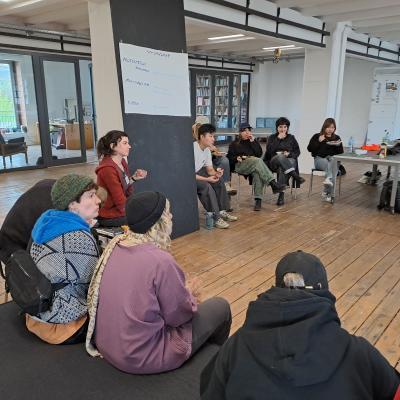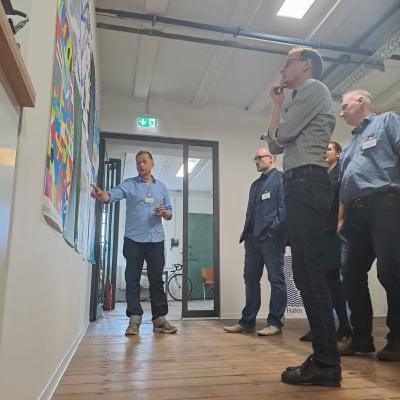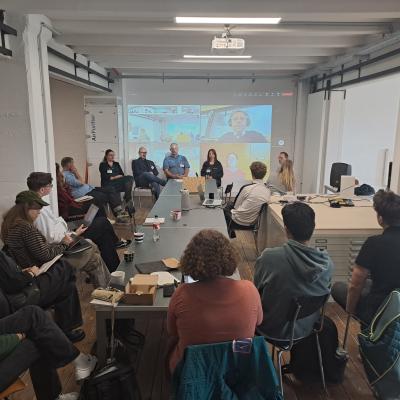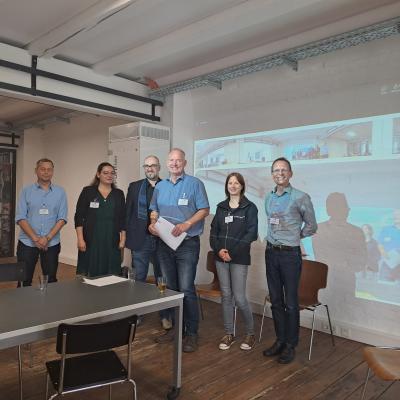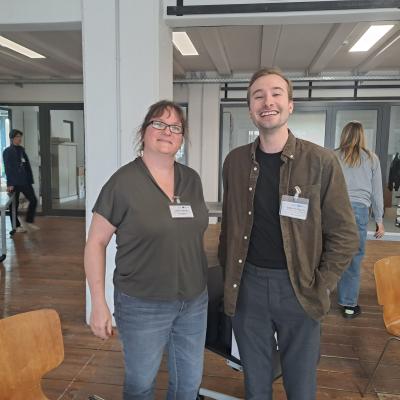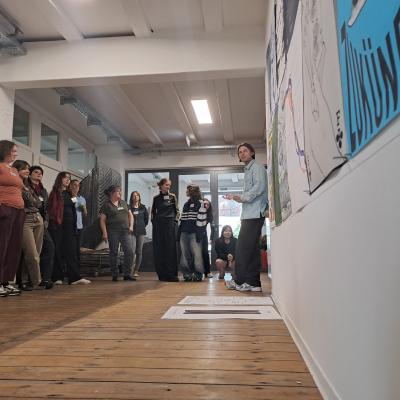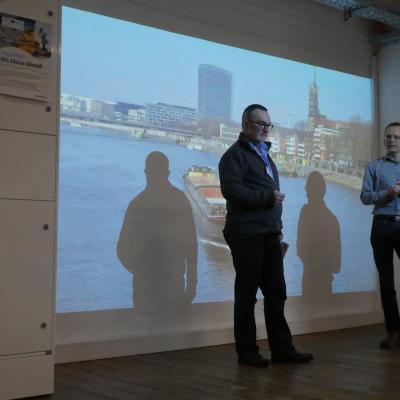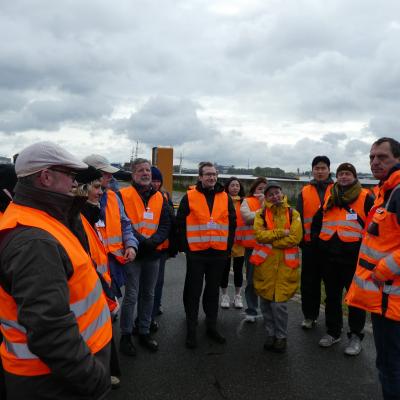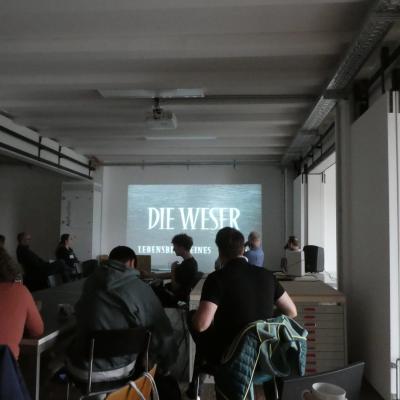“What would happen if inland shipping disappears?” was one of the central questions posed to 14 students in the Department of Art and Design at the University of the Arts Bremen. Their current research and study project ‘Waterways’ is a part of bremenports' participation in the European-funded Interreg North Sea project InnoWaTr. After a successful start in mid-April, the collaboration between the University and bremenports is now entering its second and practical phase. Overall, the students aim to explore the importance of inland navigation and its impact on various aspects of society, ecology, logistics and technologies - and further, try to find out why objective advantages, such as the significantly lower emissions of inland shipping, as opposed to road transports, are not enough to advance the development of inland navigation. Instead shipping’s part in the modal split has been drastically declining over the past years.
Kickoff event and initial experiences
This unique coalition kicked off on 19th of April with a talk by Thomas Voigt (WVW) on the historical significance and development of inland shipping. Under the overall guidance and organization the bremenports’ team “International Projects” (Lars Stemmler, Anja Heinze and Sabrina Wilms), the students and professors (Tania Prill, Olav Westphalen) made their way to the Oslebshausen lock and then on board of the bremenports’ Hol Deep survey ship. The event concluded with a workshop led by Insa Pohlenga (bremenports), which helped the students to process their experiences and brainstorm ideas - as for many of them it has been their first ever encounter with maritime infrastructure and first step on a vessel as well.
Follow-up with logistics experts
The students asked questions directly and fearlessly and were enthusiastic with their initial ideas. However, many questions could not be answered by bremenports - therefore, this follow-up appointment with logistics experts, experienced skippers and deckhands. This second phase of the project took place on the 31st of May. The meeting was opened with the historical film „Die Weser - Lebensbild eines Flusses” from the Bremen state film archive provided by Mirko Becker (Senatorin für Kinder und Bildung). It captured the strong interdependencies between nature and inland shipping logistics and set the mood for the following round of discussions. After a short break, logistics experts from NWL (Jessica Deeg, Robert Pottkamp), ship owner and captain Holger Lüpkes (Binnenschifffahrt Holger Lüpkes), captain Tim Lewalter (TLS) and bremenports’ deckhand Britta Glocksien from the survey ship Seeadler have stepped forward to openly answer the students' questions. Overall, the questions ranged from operational inquiries to the compatibility of family life with a career at ship, showcasing their enthusiasm for this special business of inland shipping logistics. Further questions were answered during the lunch, before the students were able to present their initial ideas again in a smaller group.
Ongoing collaboration and future prospects
This coalition set to continue until spring 2025, with results being publicly presented to highlight the importance of inland shipping. The collaboration between bremenports and the University of the Arts in Bremen aims to showcase the diversity and complexity of the inland waterway industry, with the next meeting already in the works. The final exhibition and these cross-discipline meetings are part of bremenports' InnoWaTr work packages and will lead to the Centre of Expertise. The Centre of Expertise will on one hand process conventional project knowledge and on the other promote a creative debate - ultimately making both available to the public to boost inland waterway shipping.

